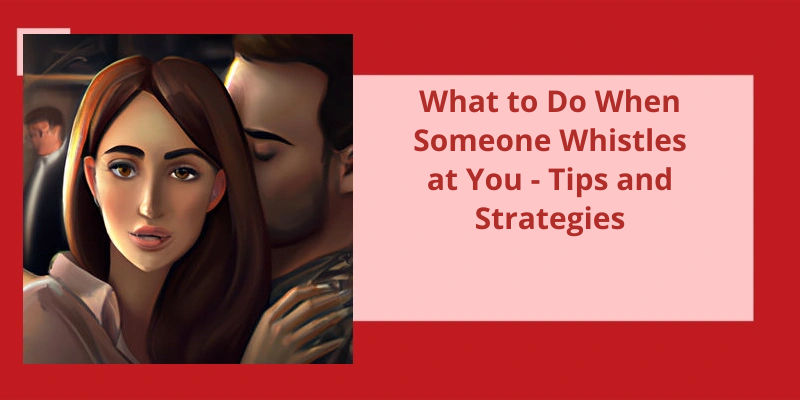"He Took My Picture: A Story of Intrigue and Invasion of Privacy" delves into the captivating tale of a mysterious incident that unveils a web of secrets, provoking questions about the boundaries of personal privacy. The story follows a protagonist who finds themselves entangled in the unexpected consequences of having their picture taken by a stranger. As the plot unravels, we’re led down a path filled with twists and turns, evoking a sense of both curiosity and apprehension. In a society increasingly interconnected by technology, this narrative forces us to confront the complex issues surrounding digital privacy, societal norms, and the ever-present threat of intrusion. Through meticulous character development and gripping storytelling, "He Took My Picture" explores the profound impact a single moment can have on an individual's life, underscoring the vulnerability we all share in a world where our every move can be captured and exploited. This thought-provoking literary work invites readers to reflect on the delicate balance between personal autonomy and the invasion of privacy, leaving them questioning the true nature of identity, trust, and the power dynamics that exist within our modern society.
Is It Correct to Say I Took a Picture?
When discussing the act of capturing an image with a camera, it’s commonly said that one “took a picture.”. However, when focusing on grammatical correctness and precise language usage, it’s more accurate to say “I took the photo.”. Using the word “photo” instead of “picture” emphasizes the specific medium of photography and reinforces the notion that the image was captured with a camera.
The use of the word “took” as a past tense verb is appropriate in this context, aligning with standard grammar rules.
In the realm of storytelling and conveying a sense of intrigue and invasion of privacy, the phrasing “He took my picture” assumes a different connotation. It implies a violation of personal boundaries and potentially unauthorized capture of an individuals image. The act of “taking” a picture in this context suggests a lack of consent or knowledge, heightening the sense of intrusion and potential harm caused.
Photography Ethics: Dive Into the Ethical Considerations and Responsibilities of Photographers When Capturing and Sharing Images, Including Issues of Consent, Privacy, and Representation.
Photography ethics is a complex field that explores the moral considerations and responsibilities of photographers in relation to capturing and sharing images. One crucial aspect of photography ethics is the issue of consent, ensuring that subjects have given their permission to be photographed and that their dignity and privacy are respected. Additionally, photographers must also navigate the delicate balance between capturing authentic moments and intruding upon personal spaces. The representation of individuals and groups in photographs is another ethical concern, as photographers should strive to challenge stereotypes and accurately portray their subjects. Understanding these ethical considerations is vital for photographers to ensure their work is respectful, responsible, and promotes positive social impact.
What Does It Mean When a Guy Wants a Picture of You?
When a guy asks for a picture of you, it could indicate a genuine interest in getting to know you better. Sharing pictures can be seen as a way to establish a deeper connection in todays digital age. It allows for a visual representation of yourself, enabling him to keep you in his mind even when youre not physically present. It might also imply that he wants to have a lasting memory of you, capturing a moment that he finds special or significant.
However, it’s important to consider context and intentions. If he specifically asks for inappropriate or compromising pictures, it may be a red flag indicating his intentions are less than honorable. In such cases, it’s crucial to prioritize your own comfort and boundaries.
Physical appearance plays a role in initial attraction and there’s nothing inherently wrong with appreciating someones looks. However, it’s essential to ensure that any interactions are based on more than just superficiality, as a meaningful connection is built on deeper qualities.
Moreover, wanting pictures could also stem from a desire for visual satisfaction or validation. In a society heavily influenced by social media, where pictures play a significant role in self-expression and identity, it’s possible that he wants to see another side of you beyond what’s portrayed online. In such cases, sharing pictures can be a way to bridge the gap between ones public persona and their true self.
Nevertheless, it’s important to remember that consent and respect are paramount. If you feel uncomfortable or uneasy about sharing pictures, it’s crucial to trust your instincts and communicate your boundaries. Your privacy and personal comfort should always be respected, regardless of the intentions behind the request.
The Potential Risks and Consequences of Sharing Intimate Pictures Online
Sharing intimate pictures online can come with significant risks and consequences. When personal photos are shared on the internet, they can easily be accessed and distributed without consent. This invasion of privacy can have profound emotional and psychological impacts on individuals, leading to feelings of shame, embarrassment, and betrayal. Moreover, these images can be weaponized and used for harassment, blackmail, or revenge. It’s crucial to exercise caution and think about the long-term implications before sharing such private content online to safeguard personal well-being and maintain control over one’s own image.
Source: When Guys Ask For Pictures What Do They Want …
Now let’s explore other phrases and expressions you can use to indicate that a photo was captured by you without sounding repetitive or repetitive.
How Do I Say Photo Taken by Me?
He Took My Picture: A Story of Intrigue and Invasion of Privacy
In a world focused on documenting every moment, capturing memories through a lens has become second nature to many. One fateful day, I found myself ensnared in a tale of mystery and invasion of privacy when a stranger took my picture. It was an ordinary day, much like any other, when I noticed a figure lurking in the shadows with a camera in hand. My curiosity piqued, I approached cautiously, wondering what drove this individual to capture my image without my permission.
As I confronted the photographer, a wave of discomfort washed over me. How did this person have the audacity to capture a moment from my life without even asking? The invasion of my privacy felt palpable, like a violation of my very being. Instinctively, I demanded an explanation, but all I received was a cryptic smile in return.
Little did I know, this encounter marked the beginning of a perplexing journey. I delved deeper into the motives behind the enigmatic photographers actions, determined to unveil the truth. Who was this person, and what purpose did my photograph serve? Each step I took towards uncovering the answers stoked the flames of curiosity within me, blurring the boundaries between reality and fiction.
As I embarked on a quest to reclaim my privacy, the lines between right and wrong began to blur. I found myself captivated by the enigma of this photographer, drawn to the intrigue they’d stirred within my previously mundane existence. Along the way, I encountered others who’d also fallen victim to the cameras lens, their stories intertwining with mine in unexpected ways.
The photographers true intentions remained elusive, leaving me with a bittersweet realization. The invasion of my privacy had forced me to confront my own vulnerabilities and question the significance of the moments we capture. It was a reminder that behind every photograph lies a story, often untold and shrouded in mystery. The image that had been taken by me had evolved into something more profound, a symbol of the transformative power of a single click.
Capturing moments through photography is a common way to document and share experiences. When someone says “I took the picture,” it simply implies the act of using their own camera to create an image. However, if the intention is to convey that someone else photographed them, it’s important to specify by saying “someone photographed me.” This clarity distinguishes between being the photographer and being the subject, providing a precise understanding of the situation.
What Does I Took the Picture Mean?
“He Took My Picture: A Story of Intrigue and Invasion of Privacy” delves into the perplexing world of personal privacy and it’s violation through the lens of a camera. With the rise of technology, capturing moments has become a ubiquitous practice, but what happens when someones image is taken without their consent?
The phrase “He took my picture” holds a profound meaning, emphasizing the action of using ones own camera to capture an image. In this context, it’s crucial to acknowledge that consent and ownership play integral roles in photography. However, this phrase never suggests that someone else took a picture of the speaker, as that narrative would be more accurately conveyed by saying “someone photographed me.”
Throughout the story, the central theme revolves around the invasion of privacy. The protagonist finds themselves entangled in a web of intrigue when they discover that someone has been capturing their image without their knowledge or consent. The experience raises questions about the ethics and consequences of invading someones privacy through photography, and the emotional turmoil that ensues.
It delves into the feelings of violation, vulnerability, and the loss of control over personal boundaries that arise from such an act. The story serves as a reminder of the importance of respecting one anothers privacy and consent.
The Emotional and Psychological Effects of Having One’s Picture Taken Without Consent
- Feelings of violation and loss of control
- Anxiety and fear of further privacy invasion
- Invasion of personal space and boundary violation
- Loss of trust in others
- Embarrassment and humiliation
- Impact on self-esteem and body image
- Psychological distress and trauma
- Increased self-consciousness and paranoia
- Potential social and professional consequences
- Feelings of anger, resentment, and betrayal
- Difficulty in forming and maintaining relationships
- Negative impact on mental health and well-being
When a guy saves your pictures, it can carry multiple meanings. While one possibility is that he wants to have a closer look at the image or simply appreciates saving photos, it may also indicate potential desires or attractions towards you. However, it’s important to consider context and individual behavior before drawing any conclusions.
What Does It Mean When a Guy Saves Your Pictures?
When a guy saves your pictures, it can suggest a range of possibilities that may require deeper exploration. Firstly, it could simply mean that he wants to take a closer look at the image. Perhaps the picture intrigued him, and he wants to examine the details more carefully. This could indicate a genuine interest in the content of the picture itself, as he may find it visually appealing or thought-provoking.
On the other hand, saving someones pictures could also signify that he’s a tendency to save images for later viewing. Some people enjoy stockpiling pictures that catch their eye or resonate with them on a personal level. It may not necessarily be about you specifically, but rather a habitual behavior he engages in whenever he comes across striking visuals.
Another possibility is that the guy has developed potential desires or attractions towards you. This could suggest that he’s visually drawn to you or feels a sense of fondness for the memories associated with those pictures.
However, it’s important to approach this situation with caution. While saving someones pictures may seem harmless, it can also be seen as an invasion of privacy. If you’re uncomfortable with the idea of someone keeping your pictures without your consent, it’s crucial to communicate your boundaries and expectations clearly.
What Are the Potential Consequences of Saving Someone’s Pictures Without Their Consent?
- Social ostracization and loss of trust from the person whose pictures were saved
- Legal consequences, such as defamation, invasion of privacy, or copyright infringement
- Damage to personal relationships and reputation
- Mental and emotional distress for the person whose pictures were saved
- Cyberbullying and online harassment
- Exposure to online hate and negative comments
- Potential loss of job opportunities or damage to professional reputation
- Invasion of personal privacy and violation of personal boundaries
- Increased vulnerability to identity theft and online fraud
- Potential damage to one’s own digital footprint and online presence






